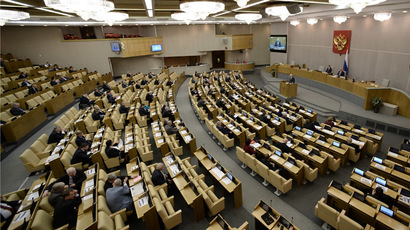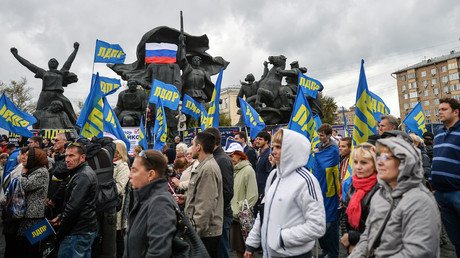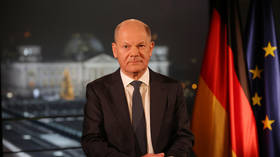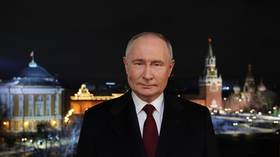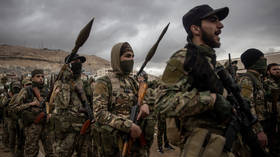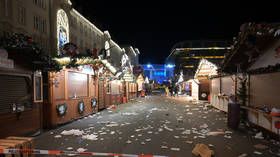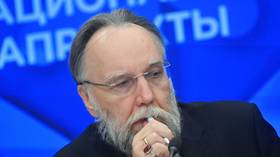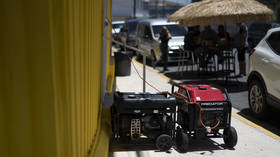United Russia plans to help opposition parties by boosting state sponsorship
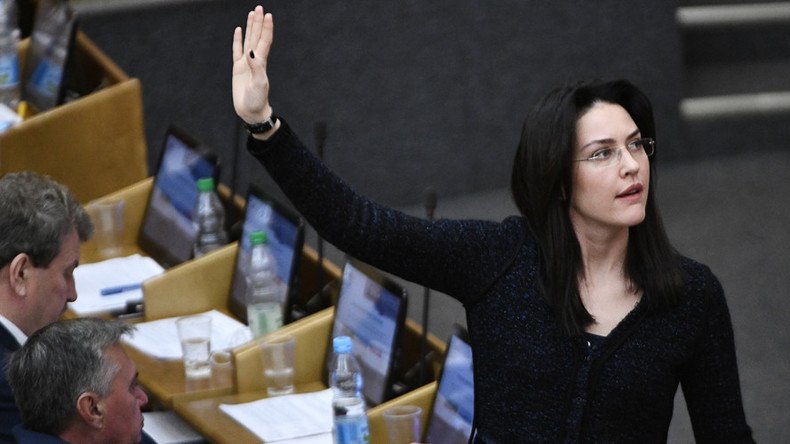
A senior official in Russia’s parliamentary majority party has told reporters that lawmakers want to increase state sponsorship to political parties in order to support opposition groups, which won very few parliamentary seats in the latest elections.
The bill is being prepared jointly by all parliamentary parties, but as the United Russia party currently holds an overwhelming majority of seats in the State Duma, it has total control over what drafts can pass the parliament.
The draft stipulates a one-time increase of state funding of political parties from the current 110 rubles to 153 rubles per vote received in State Duma elections ($1.70 to $2.35 at current rate). Russian law dictates that political parties that have overcome a 3-percent threshold in federal parliamentary elections are entitled to state sponsorship proportionate to the number of votes received. This time, however, the aid will only go to political parties who exceeded the 5-percent threshold and got actual parliamentary seats as the others’ results were too low.
“This issue is being discussed in the interests of the opposition parties. Their representation in the State Duma has shrunk significantly. This means that if the existing system of state sponsorship remains unchanged the state funding of the Communist Party, the Fair Russia Party and the Liberal-Democratic Party [LDPR] would be almost halved,” the deputy head of United Russia in the lower house, MP Andrey Isayev, told RIA Novosti.
He added that his party considers the work of parliamentary opposition as important and worthy of support and because of this the bill had all chances to pass through the Duma.
According to the RBC news site, United Russia and the LDPR would benefit most once the draft is passed into law – the former’s state funding would increase from 3.6 billion rubles per year to 4.4 billion, while for the latter the increase would be from 843 million rubles to 1 billion ($13 million-$15.4 million). The state sponsorship to the Communist Party and the Fair Russia would still be less than it was last year – 1.1 billion rubles against 1.4 billion and 501 million rubles against 956 million. The overall amount of state monetary aid to political parties will remain the same, at about 7 billion rubles.
The sponsors of the bill also emphasized that it would not require any additional allocations from the federal budget – the money will be taken from funds not used by the parties that failed to pass the 3 percent threshold required for receiving state support.
“Due to the fact that the overall number of active voters in this year’s elections was less than it was in the previous one and the money reserved in the state budget for political party sponsorship remains the same, we are going to increase the ‘price’ of a single vote,” Communist Party lawmaker Ivan Melnikov told RBC.
The LDPR’s Igor Lebedev added that the implementation of the bill would not require “a single kopek [penny]” from the budget because the Yabloko party had completely lost the right to receive state sponsorship.
In the latest parliamentary polls that took place in mid-September this year the centrist conservative United Russia party won 343 seats in the 450-seat lower house. The Communist Party gained 42 seats and the LDPR 39, while 23 went to the center-left Fair Russia party. Representatives of the Motherland and the Civil Platform parties received one place each through elections in independent constituencies, while one seat went to an independent candidate who is described as a United Russia supporter.
